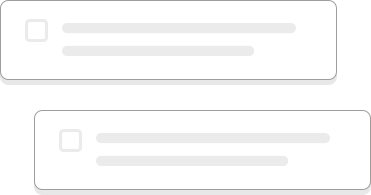
How to start weaning
Baby weaning is an exciting time. Here are our top tips on how to start weaning from our resident dietitian.
My actions
My completed actions

Get started by adding popular actions
below, or add your own items.
What other parents add
Add
Action
Used by
Wait until around 6 months as your baby will need good eye, hand and mouth co-ordination, be able to stay in a sitting position and hold their head steady.
188
188
Whether you decide to start on pureed food, finger foods (also known as baby-led weaning) or a combination of both - variety is key so baby gets the nutrients they need.
219
219
Feed your baby on solid food only once a day initially, gradually increase the amount and variety of food being responsive to baby’s cues.
217
217
A rough guideline is to start with about 5–10 teaspoons of food (about 30g) at one meal. You can then increase it to two meals a day, and then up to three meals per day.
237
237
For the first feed make sure baby isn’t tired - It may take a while for them to get used to food from a spoon, so patience is key.
197
197
Give them a little of their usual milk first to relax them and take the edge off their hunger.
216
216
For the first feed, try pureed vegetables. There is recent evidence that weaning with veggies helps set up healthy food preferences later on, let’s hope so eh!
208
208
Try to introduce a new single bitter vegetable every day for one week e.g. broccoli, parsnip, beetroot or courgettes. Keep a camera ready – you may get some funny faces.
229
229
Remember it can take up to eight tries for your baby to accept a new flavour so don’t give up!
209
209
Keep a feeding schedule stuck on the fridge to track what your baby has tried, and how often.
218
218
Baby’s weaning diet should include the essential food groups – fruits and vegetables, bread and starchy foods, dairy, meat and proteins, and fats.
205
205
Variety is key to ensure baby is getting the right nutrients for growth and development such as iron, calcium, vitamin C, vitamin A, vitamin D and omega 3 fatty acids.
184
184
Vegetarian or vegan? That’s fine just include a variety of foods such as eggs, ground nuts or seeds, soy products (tofu), cereal foods, pulses such as beans, peas and lentils to ensure they get all the nutrients they need.
160
160
If giving baby a vegetarian or vegan diet they may need additional supplements so speak to your health care professional for advice.
152
152
Babies can eat nuts from about 6 months as long as they are crushed, finely ground or in smooth peanut butter. If your baby has eczema or you have a history of allergies in your family speak to your GP first.
180
180
Foods to avoid? Whole nuts and grapes are a choking hazard; ensure they are chopped up. Pâté, raw shellfish and mould-ripened or unpasteurised cheeses carry a small risk of food poisoning so are not suitable under the age of two.
191
191
Shark, swordfish and marlin contain high levels of mercury and honey may contain bacteria that can lead to infant botulism so should be avoided.
167
167
Your email has been sent
Continue